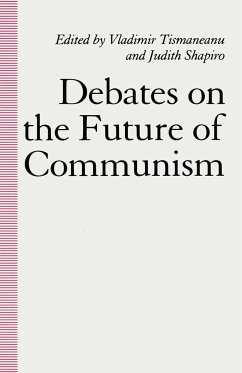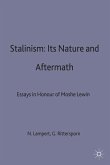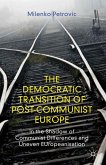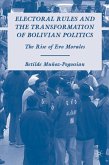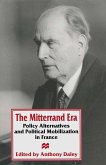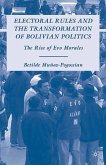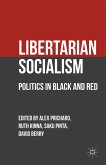Vladimir Tismaneanu
Debates on the Future of Communism
Vladimir Tismaneanu
Debates on the Future of Communism
- Broschiertes Buch
- Merkliste
- Auf die Merkliste
- Bewerten Bewerten
- Teilen
- Produkt teilen
- Produkterinnerung
- Produkterinnerung
A collection of essays analyzing the future of communism in the light of contemporary reforms. A number of critical intellectuals who have personally experienced the communist system, present a number of analyses ranging from the optimistic to the foreboding.
Andere Kunden interessierten sich auch für
![Stalinism: Its Nature and Aftermath Stalinism: Its Nature and Aftermath]() Nick LampertStalinism: Its Nature and Aftermath187,99 €
Nick LampertStalinism: Its Nature and Aftermath187,99 €![The Long Search for a Third Way The Long Search for a Third Way]() I. FavrettoThe Long Search for a Third Way77,99 €
I. FavrettoThe Long Search for a Third Way77,99 €![The Democratic Transition of Post-Communist Europe The Democratic Transition of Post-Communist Europe]() M. PetrovicThe Democratic Transition of Post-Communist Europe39,99 €
M. PetrovicThe Democratic Transition of Post-Communist Europe39,99 €![Electoral Rules and the Transformation of Bolivian Politics Electoral Rules and the Transformation of Bolivian Politics]() B. Muñoz-PogossianElectoral Rules and the Transformation of Bolivian Politics39,99 €
B. Muñoz-PogossianElectoral Rules and the Transformation of Bolivian Politics39,99 €![The Mitterrand Era The Mitterrand Era]() The Mitterrand Era61,99 €
The Mitterrand Era61,99 €![Electoral Rules and the Transformation of Bolivian Politics Electoral Rules and the Transformation of Bolivian Politics]() B. Muñoz-PogossianElectoral Rules and the Transformation of Bolivian Politics39,99 €
B. Muñoz-PogossianElectoral Rules and the Transformation of Bolivian Politics39,99 €![Libertarian Socialism Libertarian Socialism]() Libertarian Socialism39,99 €
Libertarian Socialism39,99 €-
-
-
A collection of essays analyzing the future of communism in the light of contemporary reforms. A number of critical intellectuals who have personally experienced the communist system, present a number of analyses ranging from the optimistic to the foreboding.
Produktdetails
- Produktdetails
- Verlag: Macmillan Education / Palgrave Macmillan UK / Springer Palgrave Macmillan
- Artikelnr. des Verlages: 978-1-349-11785-7
- 1st ed. 1991
- Seitenzahl: 222
- Erscheinungstermin: 1. Januar 1991
- Englisch
- Abmessung: 216mm x 140mm x 14mm
- Gewicht: 313g
- ISBN-13: 9781349117857
- ISBN-10: 1349117854
- Artikelnr.: 44459374
- Herstellerkennzeichnung
- Libri GmbH
- Europaallee 1
- 36244 Bad Hersfeld
- gpsr@libri.de
- Verlag: Macmillan Education / Palgrave Macmillan UK / Springer Palgrave Macmillan
- Artikelnr. des Verlages: 978-1-349-11785-7
- 1st ed. 1991
- Seitenzahl: 222
- Erscheinungstermin: 1. Januar 1991
- Englisch
- Abmessung: 216mm x 140mm x 14mm
- Gewicht: 313g
- ISBN-13: 9781349117857
- ISBN-10: 1349117854
- Artikelnr.: 44459374
- Herstellerkennzeichnung
- Libri GmbH
- Europaallee 1
- 36244 Bad Hersfeld
- gpsr@libri.de
Part 1 Strengths and weaknesses of communist states today: communism's strength - democracy's weakness, Ferene Feher; sources of strength and stress, Mihailo Marakovic; from paralysis to self-destruction, Carlos Franqui; dynamics of militarism in revolutionary Nicaragua, Humberto Belli; a dangerous civilization, Edward Kuznetsov; crocodiles cannot fly, Alexander Zinoviev. Part 2 Can communist states reform?: the paradigm of the boots, Miklos Haraszti; towards post-totalitarianism, Agnes Heller; socialist democracy - a question of survival, Franz Loeser; Castro's Cuba in the Gorbachev era, Carlos Alberto Montaner; a future without communism?, Ivan Svitak; reforms are possible, Doan Van Toai. Part 3 Unofficial movements: Poland - rebuilding social life, Jakub Karpinski; the emerging civil society, Zagorka Golubovic; Charter 77 and other independent movements, Jan Kavan; dissent in Yugoslavia, Aleksa Djilas; cultural resistance in Czechoslovakia, Jan Vladislav; the Romanian-Hungarian conflict, Geza Szocs. Part 4 Intellectuals and the communist state: cooperation and conflict, Paul Hollander; East bloc intellectuals, Antonin Liehm; a view from Bucharest, Mihai Botez; the Polish intellectual's anguish, Aleksander Smolar; cultural dilemmas in contemporary Bulgaria, Atanas Slavov; civilization vs anticivilization - to graduate or not, Dorin Tudoran; bitter love - Chinese intellectuals and the state, Judith Shapiro; dialectics of disenchantment, Vladimir Tismaneanu.
Part 1 Strengths and weaknesses of communist states today: communism's strength - democracy's weakness, Ferene Feher; sources of strength and stress, Mihailo Marakovic; from paralysis to self-destruction, Carlos Franqui; dynamics of militarism in revolutionary Nicaragua, Humberto Belli; a dangerous civilization, Edward Kuznetsov; crocodiles cannot fly, Alexander Zinoviev. Part 2 Can communist states reform?: the paradigm of the boots, Miklos Haraszti; towards post-totalitarianism, Agnes Heller; socialist democracy - a question of survival, Franz Loeser; Castro's Cuba in the Gorbachev era, Carlos Alberto Montaner; a future without communism?, Ivan Svitak; reforms are possible, Doan Van Toai. Part 3 Unofficial movements: Poland - rebuilding social life, Jakub Karpinski; the emerging civil society, Zagorka Golubovic; Charter 77 and other independent movements, Jan Kavan; dissent in Yugoslavia, Aleksa Djilas; cultural resistance in Czechoslovakia, Jan Vladislav; the Romanian-Hungarian conflict, Geza Szocs. Part 4 Intellectuals and the communist state: cooperation and conflict, Paul Hollander; East bloc intellectuals, Antonin Liehm; a view from Bucharest, Mihai Botez; the Polish intellectual's anguish, Aleksander Smolar; cultural dilemmas in contemporary Bulgaria, Atanas Slavov; civilization vs anticivilization - to graduate or not, Dorin Tudoran; bitter love - Chinese intellectuals and the state, Judith Shapiro; dialectics of disenchantment, Vladimir Tismaneanu.

